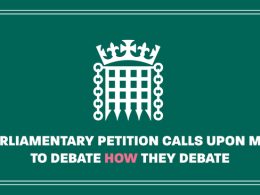The Dutch government, chaired by Mark Rutte, is concerned about the effect on investment and employment that the plans to leave the country of multinationals such as Unilever and the oil company Shell, a sector that employs two million workers and that are between the highest salaries in the Netherlands.
Upon learning of these plans, the liberal Rutte was quick to find ways to convince Shell not to move its Dutch headquarters to London, even trying to abolish the dividend tax, but there seems to be no hope, even among his government partners. .
The oil and gas giant wants to end the 114-year history of the Anglo-Dutch multinational: it will even remove Royal Dutch (Royal Dutch) from its name and leave only Shell , a news that came by surprise as a blow to a small country always proud of its international prestige as host of recognized multinationals and, together with Unilever, it will earn almost € 1 billion in tax revenue.
“The Dutch business climate will deteriorate with the departure of Shell,” warned the business association VNO-NCW, which considered it a “great loss”, since it is the second multinational that would leave the Netherlands for London in a year.
But the tax law expert Jan van de Streek, from the University of Leiden, stressed to Efe that Shell and Unilever are “two special cases because both companies have dual nationality, they have always had one foot in the United Kingdom and, obviously, when they decided to centralize their headquarters, they had to choose a country. “
“Shell’s departure from the Netherlands obviously damages our reputation. This may have an adverse effect on our image.”
“Shell’s departure from the Netherlands obviously damages our reputation. This may have an adverse effect on our business-friendly image, but I think we should not exaggerate this effect,” he said.
At present, Shell has a dual structure: it is a British company with headquarters in The Hague and two classes of shares, A and B. It justifies its departure in an attempt to put an end to this complex structure, with double work and legal differences, which complicates the raising of capital and large acquisitions. Shareholders will vote on the proposal in December.
Shell will not close its office in The Hague: of the 8,500 employees it has here, it will only take top managers, the blow is more of a fiscal one.
These moves have come after years of a heated debate over the dividend rate, which is 15% in the Netherlands while it is non-existent in the UK. Rutte tried to abolish it when Unilever announced that he was leaving, and he tried again now with Shell, but did not get support from the Parliament, or from his partners Christian Union and the progressives D66.
The Acting Minister of Economic Affairs, Stef Blok, in charge of this week’s consultations on the oil company, stressed that “it was logical that various groups were asked about how they saw the Shell movement” and called it an “elephant in the room. “that tax.
“The UK does not apply a withholding tax on dividends paid, so it is an advantage”
“The UK does not apply a withholding tax on paid dividends, so for shareholders, especially those located in tax havens, the absence of a dividend withholding tax is an advantage,” he said.
He added that, in addition to Dutch-based multinationals, such as Heineken, Philips or ASML (chips), the Netherlands has “a large foreign investment by subsidiaries of multinationals” such as Nike or Ikea, and for these branches “there is no tax withholding. dividends “.
“It was a smart move to maintain dividend retention from a moral and welfare perspective. I think it would have been detrimental to overall welfare to have abolished it. Perhaps we would have kept Unilever and Shell headquarters, but we would have lost around € 2 billion. annual income, “van de Streek calculated.
In addition, he analyzed, “it would have had negative effects on tax morale” in the Netherlands if the government had given in “to the demands of two multinationals to abolish a tax specifically for them.”
However, Shell’s national image is not the same as when it arrived in 2004. In May, a Dutch judge demanded that it adhere to the Paris Climate Agreement and lower its emissions more rapidly, with a net reduction of 45% in 2030, but the company ensures that this failure has not influenced its decision to go to London.
In addition, a bill presented by the green GroenLinks and criticized for being incompatible with European legislation, which seeks to retain with millionaire fines companies that want to go to another country to avoid taxes, which was raised in October last year to prevent Unilever from merging its Anglo-Dutch headquarters in London.
“I do not expect other Dutch-based multinational companies to leave the Netherlands due to withholding on dividends, or any other tax,” said Van de Streek.









